Late on the evening of January 27, 1973, the phone rang repeatedly at the Ministry of Foreign Affairs headquarters.
Mr. Nguyen Dy Nien - who was then in charge of the South Asia Department (later Minister of Foreign Affairs from February 2000 to June 2006) - picked up the phone. On the other end of the line, the Government Office announced the good news: the Paris Agreement had been officially signed, concluding 4 years, 8 months, and 14 days of arduous negotiations. The people present seemed to burst into joy and emotion.
Every time he recalls that sacred moment, Mr. Nguyen Dy Nien still remembers every detail.
Minister of Foreign Affairs of the Provisional Revolutionary Government of the Republic of South Vietnam Nguyen Thi Binh signed the Paris Agreement in 1973 (Photo: En.baoquocte).
"52 years have passed, and the more we look back at history, the more we see the great significance and significance of the Paris Agreement. The negotiations that lasted more than four years are a testament to the resilience of Vietnamese diplomacy - something that the whole world admires. The agreement contributed to ending the longest and most fierce war in modern history," he shared.
At the Paris negotiation table, there were four parties present: the United States, the Democratic Republic of Vietnam, the Provisional Revolutionary Government of the Republic of South Vietnam, and the Republic of Vietnam. The Democratic Republic of Vietnam delegation was headed by Mr. Xuan Thuy, and included special advisor Mr. Le Duc Tho and several other officials.
The Provisional Revolutionary Government of the Republic of South Vietnam was headed by Ms. Nguyen Thi Binh.
Fierce "battlefield" without gunfire
According to Mr. Nguyen Dy Nien - former Minister of Foreign Affairs - the Paris Agreement bears a special mark with 4 unprecedented points in the history of international negotiations.
Firstly , this was the longest war-ending negotiation in world history, lasting 4 years, 8 months and 14 days. To reach the signing of the Agreement, the parties went through 200 official meetings, 45 private meetings, 500 press conferences and more than 1,000 interviews.
Mr. Nguyen Dy Nien assessed: "The negotiations leading to the signing of the Paris Agreement were like a long-lasting battlefield. Even though there were no gunshots, each meeting was a tense battle of wits."
After much debate, the parties agreed to use a large round table, 8m in diameter, cut in half, and covered with a blue tablecloth (Photo: VNA).
The tension was not only present in the negotiation sessions but also started from the smallest details. Right before the conference opened its first session, the parties had to go through a struggle over the shape of the table used for meetings.
In her memoir Family, Friends and Country , Ms. Nguyen Thi Binh - Head of the negotiation delegation of the Provisional Revolutionary Government of the Republic of South Vietnam - recounted that the preparatory meeting was supposed to start on November 6, 1968, but the US side used the excuse that the Saigon Government had not arrived yet so the meeting was not held, and another reason for their delay was procedural issues, including the shape of the table.
"In the history of world diplomatic struggles, there has never been such a special way of starting, first of all fighting over the table," Ms. Nguyen Thi Binh wrote in her memoir.
The Vietnamese side requested a square table for four negotiating parties or a round table divided into four. Meanwhile, the US side proposed a rectangular table with two sides or a round table divided into two.
Finally, the parties agreed to use a large round table, 8m in diameter, cut in half, covered with a blue tablecloth, each side has a dividing line, so anyone can understand it as 2 sides or 4 sides.
The American side and the Saigon government representatives sat close together as one side, while the Vietnamese side, including the delegations of the Democratic Republic of Vietnam and the National Liberation Front of South Vietnam - sat in two separate delegations.
Right at the negotiating table, the US side used modern equipment that could transmit information directly to Washington. Meanwhile, the Vietnamese delegation only had a magnetophone (magnetic tape recorder) to record the content of the speeches. However, in her memoirs, Ms. Nguyen Thi Binh affirmed: "In terms of argument, we did not lose."
The second highlight of the Paris Agreement, according to Mr. Nguyen Dy Nien, is that this was the first conference in the world to take place in the context of "fighting and negotiating at the same time".
While the war continued fiercely on the battlefield, negotiations were still being promoted on the diplomatic front. The combination of military and diplomacy clearly demonstrated the mettle and intelligence of the Vietnamese revolution.
The third highlight is the great historical significance of the Paris Agreement in forcing the United States to recognize the independence, sovereignty, territorial integrity and unity of Vietnam.
Former Foreign Minister Nguyen Dy Nien emphasized: "The most important thing is that the US must withdraw all troops, advisors, and military bases of the US and its allies from South Vietnam, and stop interfering in the internal affairs of South Vietnam. Those internal issues must be decided by the people of South Vietnam themselves. This is the bell signaling the inevitable end of the Republic of Vietnam regime."
Fourthly , according to Mr. Nien, no international conference has received such strong consensus and support from global public opinion as the Paris Conference.
Hundreds of thousands of people took to the streets to demonstrate in support of Vietnam in European countries, in France and even in the United States. The wave of anti-war protests created enormous pressure on the US government and negotiating team at the conference.
Victory creates turning point at the negotiating table
The road to the historic moment when the four parties signed the Paris Agreement was a long and arduous one. Throughout the negotiation process, the US continuously used military campaigns with the intention of subduing the fighting spirit of the Vietnamese people, but in the end, they all failed.
The period 1971-1972 was a time of particularly intense war. At the conference table, the argument with the US side became more intense than ever.
Mr. Nguyen Dy Nien - Former Minister of Foreign Affairs - assessed the Paris Agreement as one of the milestones in the history of Vietnamese diplomacy (Photo: Nguyen Ngoan).
By early October 1972, after many rounds of intense negotiations, the parties had reached a basic agreement on the draft Agreement, scheduled to be signed on October 30, 1972. However, after being re-elected, US President Richard Nixon suddenly turned around and demanded to revise the agreed contents of the Agreement.
By raiding mainly with B52s, the US had the ambition to bring North Vietnam back to the "Stone Age", no longer having the potential to support the South, and to pressure us to resume negotiations in Paris.
The B52 was the most modern strategic bomber of the US at that time. This type of aircraft could fly at an altitude of over 10km, had fighter escorts and a sophisticated jamming system that made it difficult for radar to detect and very difficult for anti-aircraft missiles to hit.
In Hanoi, Mr. Nguyen Dy Nien and other officials from the Ministry of Foreign Affairs were on duty at the office for 12 days and nights. In a bunker equipped with batteries and telephones to contact the Department of Operations (Ministry of National Defense), staff took turns updating the locations of US bombings to promptly speak out to international public opinion.
From inside the bunker, Mr. Nguyen Dy Nien could clearly hear the roar of the B52 planes in the sky. Every time the bombs fell, the whole bunker shook, creating a floating feeling due to the pressure of the explosion.
In those days, Hanoi was engulfed in smoke and fire, many neighborhoods were leveled, houses were destroyed, and grief prevailed. However, the brave spirit and indomitable will of the Vietnamese people remained unshaken.
In just 12 days and nights, our army and people shot down 81 American planes, including 34 B52s.
"Every time we heard the shout "crashed" - signaling a B52 was shot down - outside the bunker, my colleagues and I were extremely happy, just wanting to run to the surface," Mr. Nguyen Dy Nien recalled.
After the heavy defeat in the Dien Bien Phu air campaign, the US side immediately contacted, hoping to resume negotiations. Mr. Le Duc Tho quickly went to Paris, opening the final stage to sign the Paris Agreement - a historic victory for the Vietnamese people.
Mr. Nien believes that victories on the battlefield are decisive blows to success at the negotiating table.
"The victory at Dien Bien Phu in the air forced the US government to sign the Paris Agreement. That was a strategic step for our army and people to move towards completely liberating the South and unifying the country," said Mr. Nien.
The battle of wits between the "Diplomatic President" and the "Giant Diplomat"
Mr. Nguyen Dy Nien assessed: "The US came to the Paris Conference with a very subjective mindset."
The former Foreign Minister analyzed that America is subjective because it is confident that it is a superpower with a modern army and weapons, and has experienced diplomats.
At that time, the US government sent Mr. William Averell Harriman - the first head of the negotiating delegation - to Paris. Mr. Harriman was very experienced because he had been a diplomatic advisor to three US Presidents.
However, when it came to the actual negotiation stage, Henry Kissinger became the leader of the US negotiating team. Henry Kissinger was a veteran diplomat and doctor of law. According to Mr. Nien, Mr. Kissinger was once called the "President of Diplomacy" by Western public opinion.
"The American delegation had experienced and skilled people participating in the negotiations, so they were very subjective. They thought that Vietnam could not have people of sufficient stature to dialogue with Harriman or Kissinger," said Mr. Nguyen Dy Nien.
Looking back at history, the former Foreign Minister affirmed the wisdom of President Ho Chi Minh in choosing the right person to participate in negotiating the Paris Agreement.
According to Mr. Nguyen Dy Nien, in the first half of 1968, Mr. Le Duc Tho was fighting in the South with the important position of Deputy Secretary of the Central Office for Southern Vietnam. Uncle Ho and the Central Committee urgently called him back to Hanoi, preparing to go to Paris for negotiations in the role of Special Advisor of the delegation of the Democratic Republic of Vietnam.
Having worked for many years under the direction of Mr. Le Duc Tho, diplomat Nguyen Dy Nien was impressed by "a dynamic, very decisive person, with foresight and practical experience on the battlefield".
On the occasion of the 100th anniversary of Mr. Le Duc Tho's birth, Mr. Nguyen Dy Nien once compared his predecessor to a "Giant Diplomat", although Mr. Tho had no formal training in diplomacy. When "fighting" at the negotiating table, Mr. Tho demonstrated the mettle and spirit of a true and experienced diplomatic "warrior", making the opponent respect him.
"Mr. Le Duc Tho is upright, straightforward, extremely intelligent, flexible in all situations and has a very strong fighting spirit," Mr. Nguyen Dy Nien shared.
Advisor Le Duc Tho (sitting in the middle) in 1973 (Photo: VNA).
According to Nguyen Dy Nien, at the negotiating table, Le Duc Tho had used many harsh words of condemnation on the other side, causing Henry Kissinger to "listen with his head down". The American delegation was very apprehensive every time they saw Tho twirling the tip of his pencil - a sign that the Special Advisor of the Democratic Republic of Vietnam delegation was about to make harsh criticisms.
During the period 1970-1972, Mr. Le Duc Tho and Kissinger went through dozens of tense negotiation sessions in Paris.
Later, in his memoirs, Henry Kissinger wrote: "I could have done better if the person across the negotiating table of the Paris Agreement on ending the war and restoring peace in Vietnam had not been Mr. Le Duc Tho."
In 1973, the Nobel Peace Prize was awarded to Mr. Le Duc Tho and Kissinger by the Nobel Committee. However, Mr. Tho refused to accept the prize because peace had not yet been truly established in South Vietnam. He believed that the people who deserved the Nobel Peace Prize were the Vietnamese people.
Meanwhile, domestically, Mr. Nguyen Duy Trinh - Deputy Prime Minister and Minister of Foreign Affairs at that time - also played an important role in the signing of the Paris Agreement. He was the one who participated in preparing the content for the negotiations including tactics, strategies...
Those who worked in the diplomatic sector in the same generation as Mr. Nien still remember Mr. Nguyen Duy Trinh's advice: "Whoever does what knows what they do, don't discuss it outside of the scope of the matter." All information was kept completely secret, even if the enemy used modern means, they still couldn't exploit it.
During the days working with Mr. Nguyen Duy Trinh, Mr. Nien noticed his sharpness and careful, decisive working style.
When the draft of the Paris Agreement in three languages, Vietnamese, English and French, was sent to Hanoi for the Politburo to approve, Mr. Nguyen Duy Trinh was the one who directly read the French draft.
He himself discovered that the paragraph about "ending American intervention in South Vietnam" was not clearly expressed. Mr. Trinh wrote a red pen note himself, requesting that it be edited.
"In international law, documents have three languages: the language of that country, English and French. When there is a conflict between the Vietnamese and English documents, the French version is the main reference document. This is very important," Mr. Nguyen Dy Nien emphasized.
Among the key figures participating in the Paris Agreement negotiation delegation, the former Foreign Minister did not forget to mention Mr. Nguyen Co Thach - assistant to Mr. Le Duc Tho. During the Paris Agreement negotiations, Mr. Nguyen Co Thach showed his sharpness, cleverness and talent.
Deputy Prime Minister and Foreign Minister of the Democratic Republic of Vietnam Nguyen Duy Trinh (center) signed the Paris Agreement on January 27, 1973 (Photo: VNA).
Mr. Nguyen Dy Nien also expressed his deep impression of Ms. Nguyen Thi Binh. The female Foreign Minister of the Provisional Revolutionary Government of the Republic of South Vietnam showed her "iron" mettle in Paris. World public opinion had many compliments for her.
Former Foreign Minister Nguyen Dy Nien assessed that the Paris Agreement was one of the milestones in the history of Vietnamese diplomacy. The signing of the Agreement was not only a victory for the Vietnamese people but also went down in history as the common struggle of the world's people for peace, independence, freedom, progress and justice.
"The Paris Agreement demonstrates the wisdom and mettle of the Vietnamese people. The signing of the Paris Agreement not only created a turning point in diplomacy, but also added strength and confidence to the Vietnamese people, leading to the final victory of the 1975 Spring General Offensive and Uprising, culminating in the historic Ho Chi Minh campaign, completely liberating the South and unifying the country," Mr. Nguyen Dy Nien affirmed.
Mr. Nguyen Dy Nien was born in 1935 in Hoang Hoa, Thanh Hoa. He was elected to the Party Central Committee of the 7th, 8th, and 9th terms; a member of the 11th National Assembly; a member of the National Defense and Security Council...
Mr. Nguyen Dy Nien held the position of Minister of Foreign Affairs from February 2000 to June 2006.
Dantri.com.vn
Source: https://dantri.com.vn/doi-song/dam-phan-hiep-dinh-paris-dau-tri-gay-can-tu-chuyen-chon-ban-ngoi-hop-20250421183827416.htm


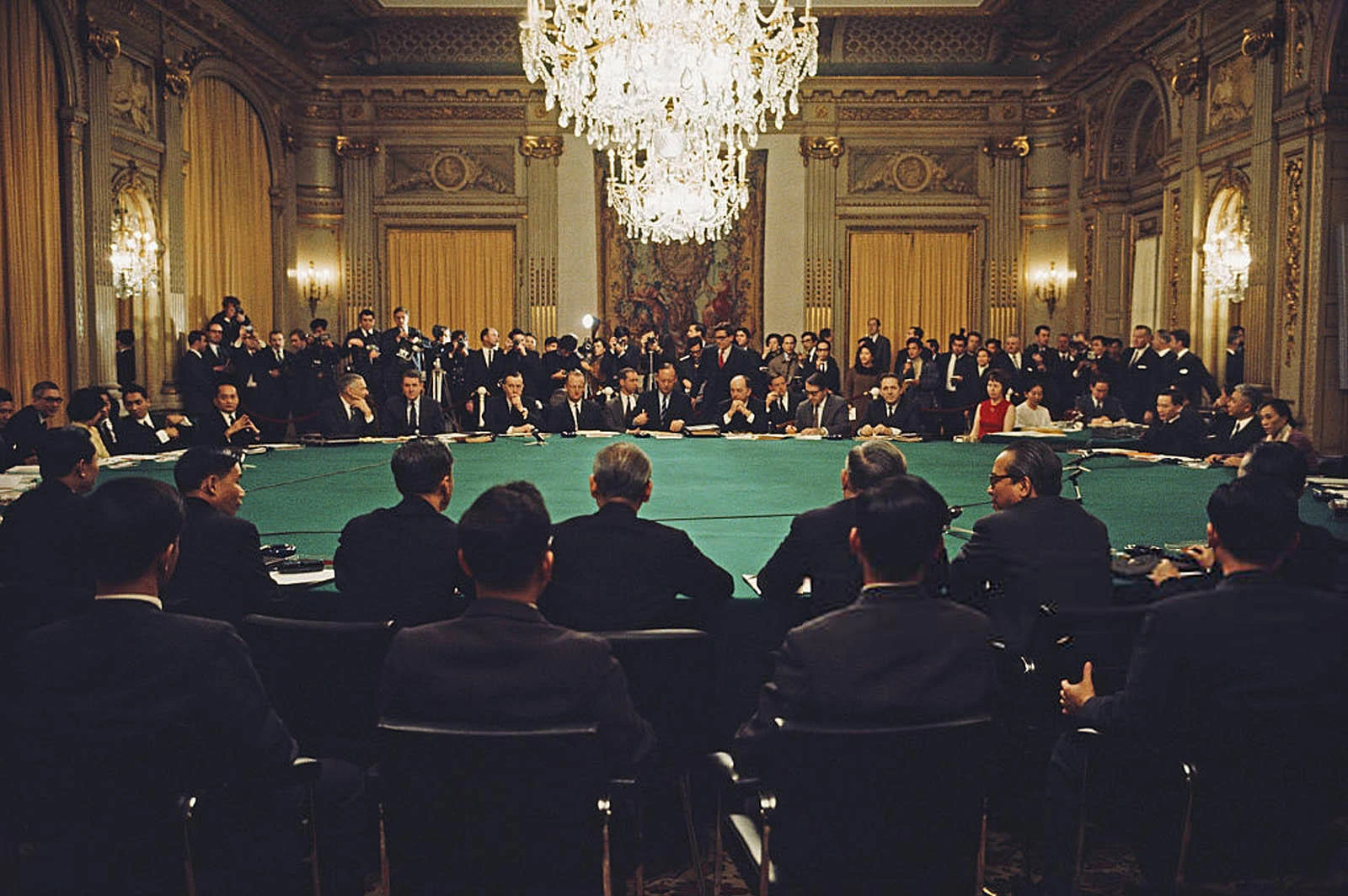
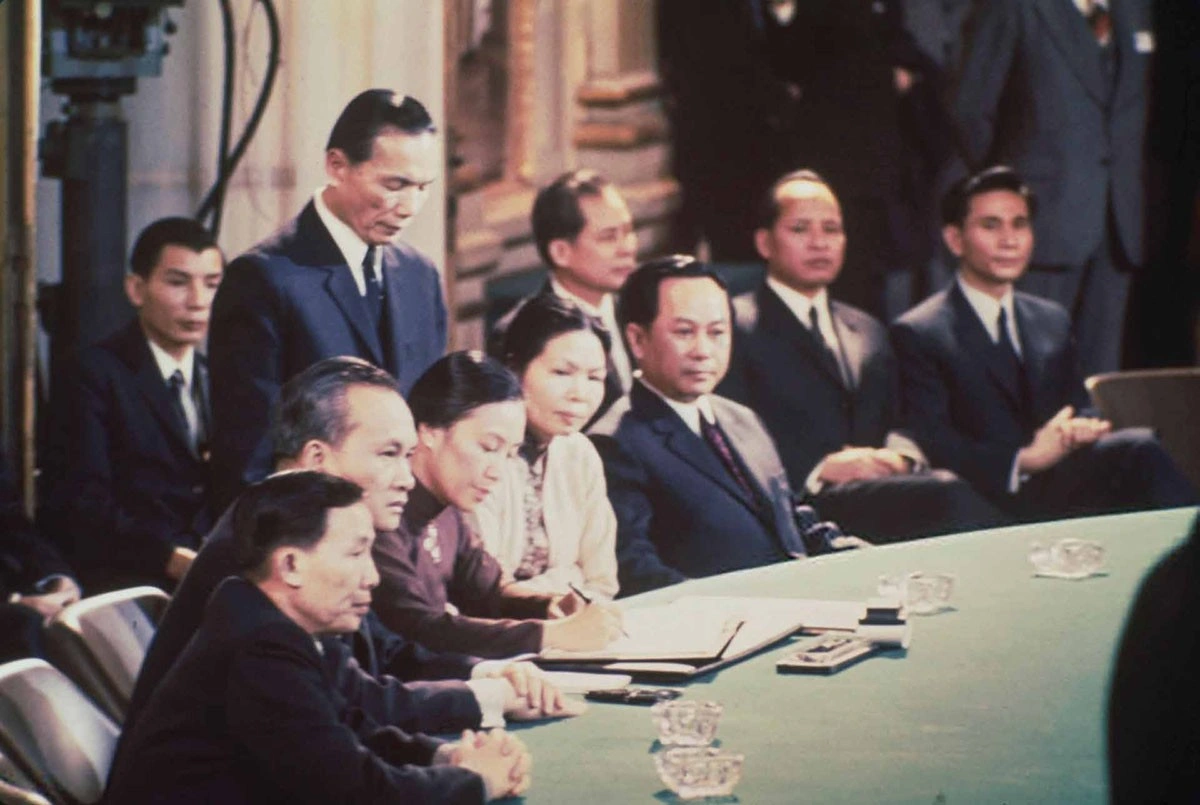
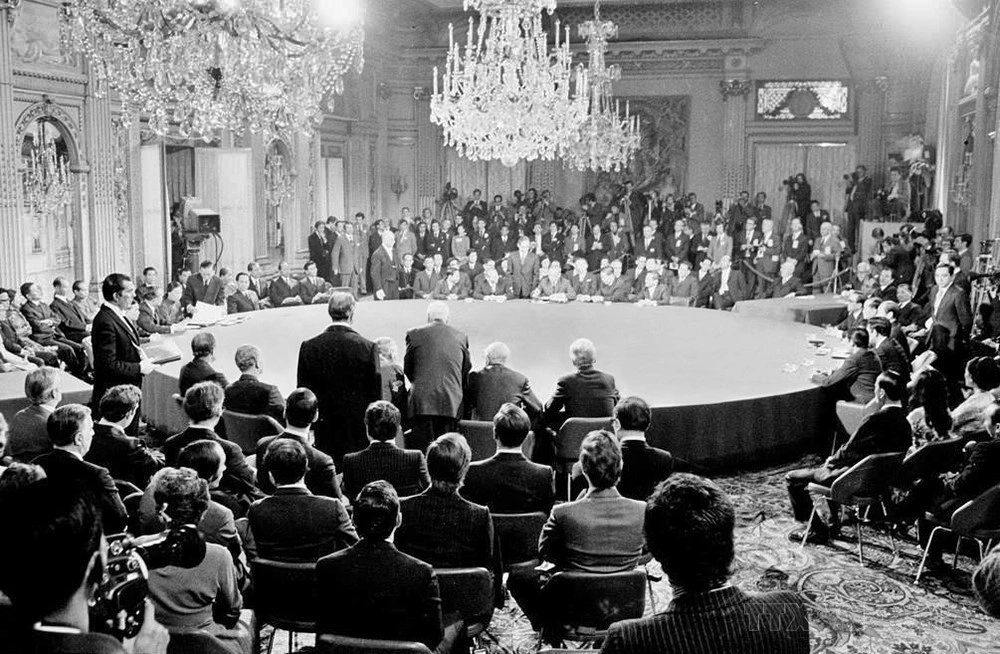
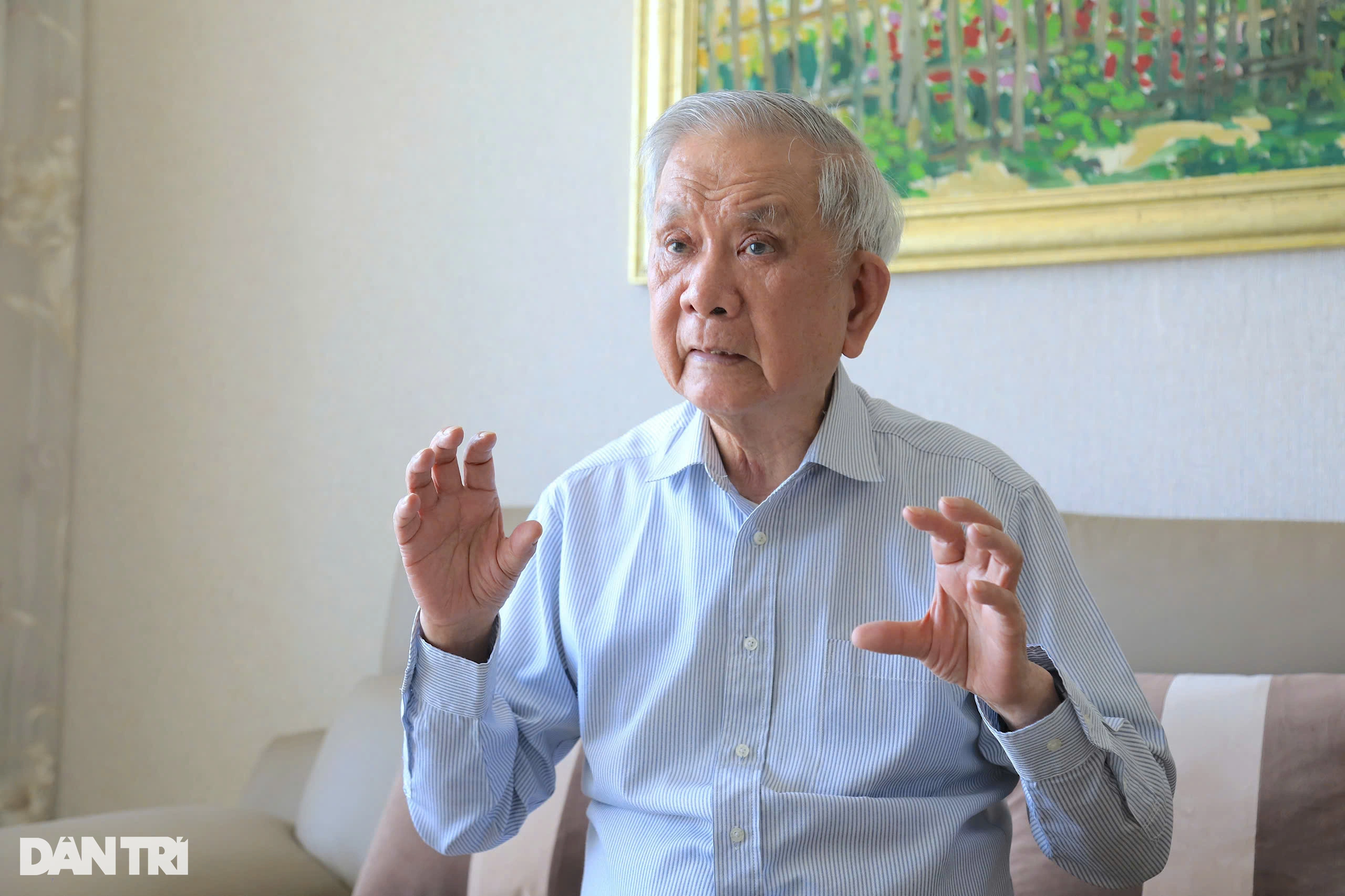
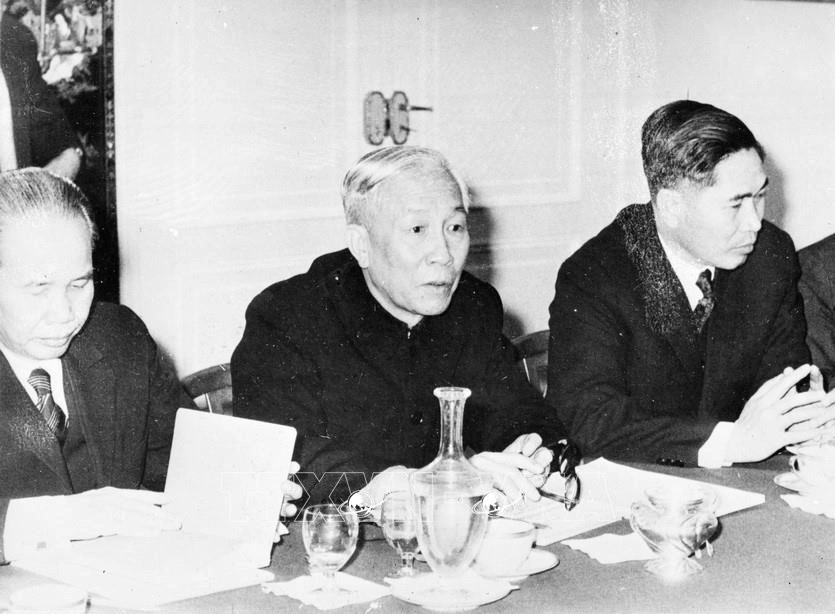
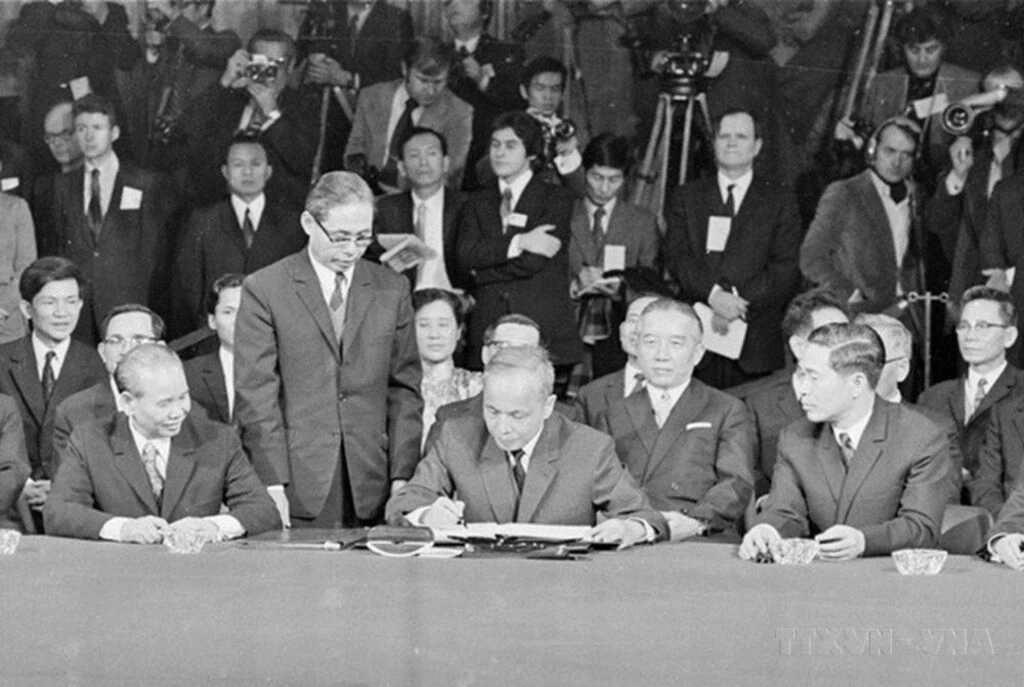



![[Photo] Party and State leaders attend the special art program "You are Ho Chi Minh"](https://vphoto.vietnam.vn/thumb/1200x675/vietnam/resource/IMAGE/2025/5/18/6895913f94fd4c51aa4564ab14c3f250)
![[Photo] Many young people patiently lined up under the hot sun to receive a special supplement from Nhan Dan Newspaper.](https://vphoto.vietnam.vn/thumb/1200x675/vietnam/resource/IMAGE/2025/5/18/6f19d322f9364f0ebb6fbfe9377842d3)
![[Photo] Ready for the top competitions of Vietnamese table tennis](https://vphoto.vietnam.vn/thumb/1200x675/vietnam/resource/IMAGE/2025/5/18/9c547c497c5a4ade8f98c8e7d44f5a41)
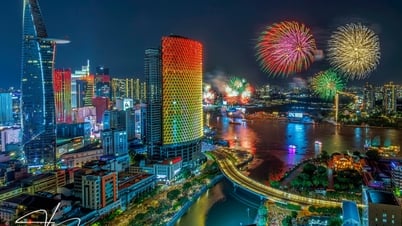

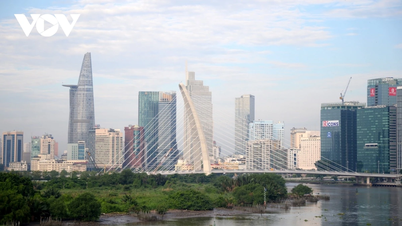

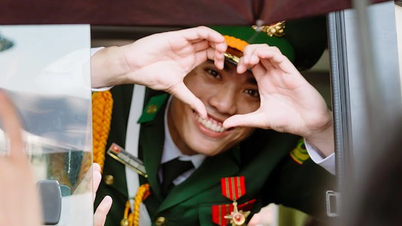

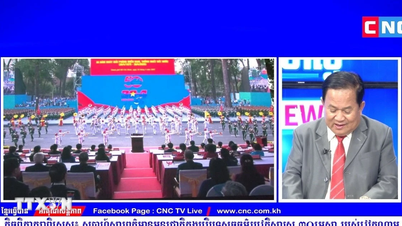

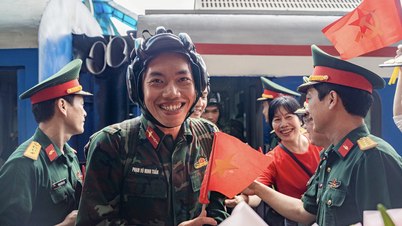
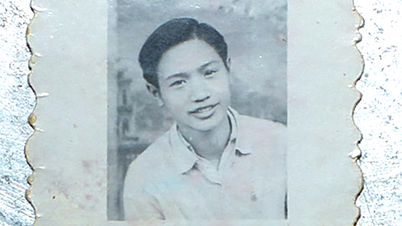
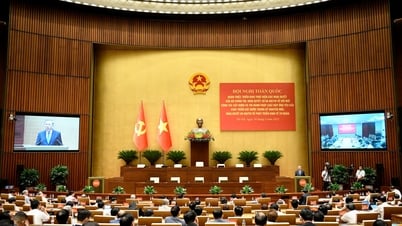



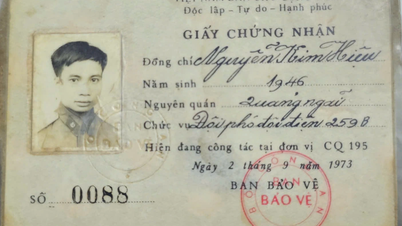
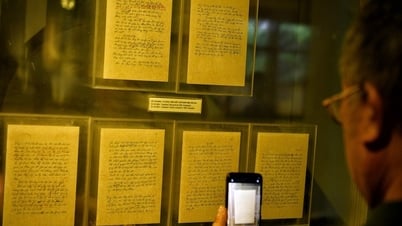

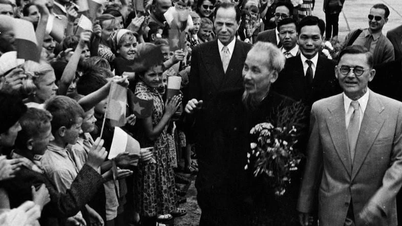
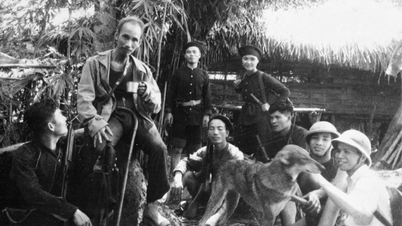




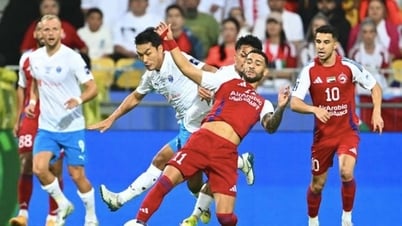
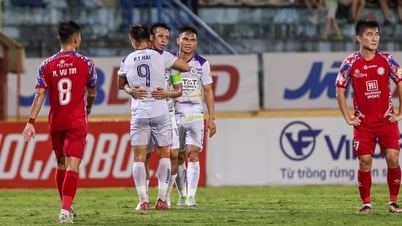


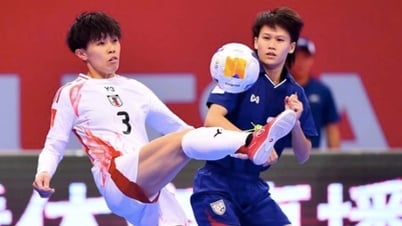
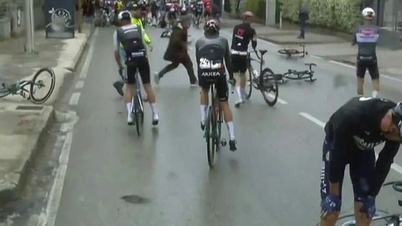













































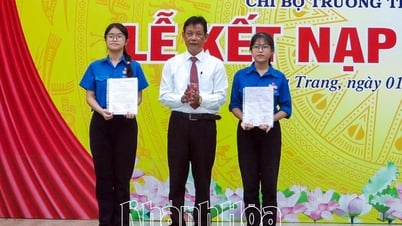

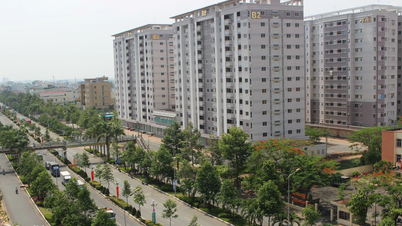


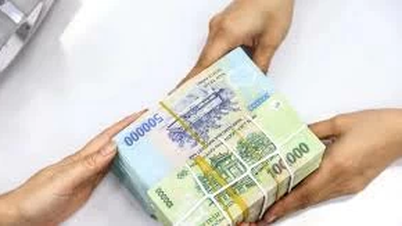
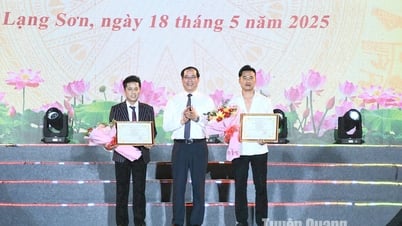

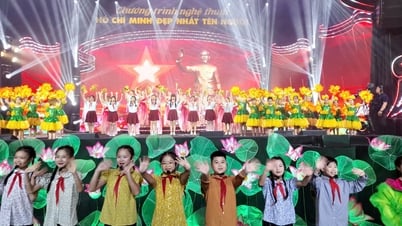











Comment (0)